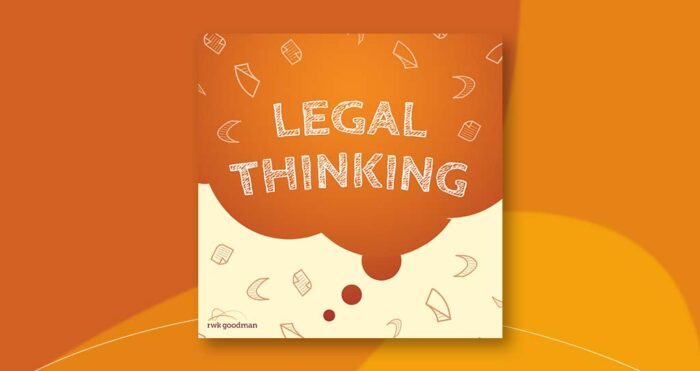Crypto fraud – red flags and how to take action when you’ve been scammed | Legal Thinking Podcast
You can also listen to our podcast on your podcast platform of choice - find it here >
Welcome to this episode. This time we're talking crypto fraud with Head of Dispute Resolution and civil fraud litigator, Dan Dodman. For the purposes of this transcription we've broken down the interview into specific sections discussed.
Hi Dan, thanks for joining us today and welcome to the podcast. I guess my first thing is if you just tell us a little bit about what you do in the area of civil fraud just briefly?
Yeah of course, so I’m a Partner in our litigation team and you know, as you say one of my sort of specialty areas is civil fraud. And that’s quite a broad remit, so we tend to help clients when they think or have been subject to an element of fraud. So that covers both elements of it: both identifying whether a fraud has happened, so the investigatory aspects of going into, you know, a business and looking at various pieces of evidence, and trying to establish exactly what’s happened which is obviously a pretty crucial part of the process. And then, once we have worked out what’s happened, effectively bringing proceedings to recover funds and that goes the whole way from starting the court proceedings against a party to tracing assets, to look at different jurisdictions if money’s been moved to different places and also you know, looking at the ways that money’s been moved, so crypto and various other different things, which I think is what we’re going to be talking about.
What is crypto fraud?
So crypto, I mean it’s obviously in the last few years become a growing kind of passion for quite a lot of people. I just wonder- obviously we hear a lot about crypto fraud and that kind of thing – is it a particularly rife area for fraud? What kind of frauds occur in the crypto space that you’ve seen?
Yeah, so what you see often with crypto is that it’s often a vehicle for what I would describe as ‘traditional’ fraud. So although it’s all very new and you know interesting and exciting, some of the underlying things that happen are actually very old or certainly have been around for a long time. And what you’re seeing is the crypto are being used as a vehicle to commit those frauds, or it’s being used in a way that entices people to fall for those frauds in the first place. So what I mean by that is either the assets are sort of dispersed using crypto or alternatively people sign up for things like investment frauds for example, because crypto is new and exciting and there’s lots of messaging out there about how much money certain people have made, but at its heart you’re still looking at the same sort of investment frauds that you’ve had really for you know, potentially hundreds of years – things like Ponzi schemes and you know, all the rest of it.
Why is there so much fraud in crypto?
So that newness, that is the reason why potentially so much fraud occurs in the crypto space, just because it’s so relatively new, people don’t understand it, they don’t know when they’re basically being sold something that isn’t real, all that kind of thing, is that what you see a lot?
Yeah, I think that’s right. I think that’s absolutely right, I think the … I think it’s partly that, I think it’s also partly that there’s been so much coverage about such high returns given to people you know, legitimately through sort of crypto investment. So it makes the standard investment frauds look more feasible and more you know, more realistic so it’s one of these things where someone says I’m going to give you sort of 200/300% return.
You’re gonna try for it!
Yeah and there’s often a lot of question marks raised, but in circumstances where you know actually there’s lots of media coverage about people who have had you know, 200/300%, 2,000%, 3,000% returns off crypto – suddenly those kind of numbers don’t look so ridiculous and people go well actually, I wouldn’t mind signing up and having a go at this.
So it’s not the technology in of itself, it’s just the people using the hype around the technology to basically take advantage I guess, by the sounds of it?
Yeah, yeah, absolutely and I think there’s also a lack of understanding just really across the board from lots of people about how crypto works or what it means. And I often think when you are looking at things that people don’t understand there’s obviously much- it’s much harder for people to make an assessment about whether what they’re being told is potentially fraudulent or you know, completely unrealistic or you know, something that wouldn’t possibly happen. There becomes an element of trust because you’re relying on someone else to tell you what the situation is and that is an area where fraudsters can you know, really make a lot of waves potentially.
How does fraud happen in cryptocurrency?
So when a fraud actually occurs in the crypto space, in your experience, what kind of stage are people at when they usually kind of come to you when they’ve experienced crypto fraud? What is it that’s tipped them over the edge to realise that “oh, it’s all gone?” There are certain instances I’ve read about where people put all this money in and then people just … the crypto fund just completely disappears or something like that – is that a common kind of trend or are there different kind of circumstances that occur that bring people to lawyers such as yourself?
Yeah, I mean that’s pretty bang-on right. I mean what you find normally is that fraudsters will take advantage of individuals and they will keep on taking advantage for as long as they possibly can and they will push, you know, they will ask for more investments, they will say oh well the investment’s coming. In certain circumstances what you find is that you may get some element of return back so people get a little bit of money back and they go “oh well that’s great, you know, I’ll put some more money in”, but there will always come a point where the fraudsters realise that you know, someone’s getting suspicious or there’s no more facility to get anything else out of those individuals and at that point, they will disappear off or in certain circumstances. Certain clients that I’ve had where for example the police have been involved or the FCA have been involved. And you know, that sort of flags people up at an early stage.
So they get contacted by the FCA saying you may have been involved in this or how does that occur?
Yeah, or there’s press releases. And the FCA is a difficult area because a lot of these cryptocurrencies aren’t regulated by the FCA or they won’t be regulated by the FCA and so that also provides less protection, but that doesn’t mean that the FCA don’t sort of keep an eye on certain organisations that are doing sort of brokerage work or might be selling other types of products associated with crypto. But the crypto currencies themselves generally aren’t regulated.
How do you handle crypto fraud?
And on that point, the lack of regulation in the space, does it make it more difficult for you to recover funds when this is a completely unregulated space, because you say that the frauds are the ‘classic’ type but does the nature of crypto fraud make it more difficult to recover funds because it’s unregulated or anything like that?
Yes it can do, yeah so I mean one of the traditional ways that you would seek to recover funds for an individual, depending on the values that we’re talking about here, is through the Financial Ombudsman, and that option isn’t available where there’s no regulation in the way that we just talked about so that cuts off a major avenue of potential redress, the potential complaint. That’s balanced I think by the fact that the English courts have been very proactive at a fairly early stage about dealing with crypto and have sort of got their head around the crypto environment to the extent that it’s now possible to freeze crypto assets, trace crypto assets in the way that you would do with a traditional fraud if someone had moved money from one location to another location or had bought property or a car – the English courts have taken a pretty proactive view about that and about the actual process of freezing crypto assets and that’s quite a well-worn path now.
So from that perspective, it’s quite, you know it’s quite positive news. The difficulty comes that you know, freezing injunctions and tracing of assets is an expensive process, it’s a process that costs quite a considerable amount of money. So, really, it’s only appropriate where the fraud is quite you know, large scale really.
Okay. I mean you were talking about the tracing of funds and seeing things moving about – does the blockchain technology make it easier for that tracing because obviously with blockchain technology the idea is you get this full log of where money has been moved and all that kind of thing. Does that have any bearing on tracing money?
It does yeah, it does, and it can actually make it a little bit easier to find where the money has gone. I mean ultimately it’s going to be taken out of the system or spent on something somewhere, it doesn’t normally just sort of exist as crypto forever, but the actual process of tracing or finding out where assets are can actually be slightly easier. But what you traditionally find is it’s also probably slightly easier for those assets to disappear into different jurisdictions which are particularly hard to enforce against or to go against, and that’s a challenge.
What should you do if you get scammed in crypto?
So if someone is listening to this and they think “okay, I’ve been the victim of a crypto fraud”, what is the first step in taking legal action?
Well I think the first step before that is to … is to make the assessment that you might well be subject to one of these things and to cut contacts with the potential fraudster or, at the very least, not keep providing assets. One of the things that I do see and it’s very easy you know when we’re sort of in the cold light of day to say that ‘people ought to be more aware of this’ but these are all quite complicated, quite sophisticated, social engineering exercises and there’s a huge amount of pressure to put more money to invest more, to do this, and if people are putting you under pressure or time-limited pressure or saying you know, “if you don’t invest this extra amount in crypto by this particular time then you’re going to lose all the rest of the money that you’ve already put in” – anything like that should be flagging, you know, should be flagging alerts.
A little red flag, yeah.
Yeah red flags pretty early, because a lot of these frauds rely on you not taking a step back and looking at things. I think the second thing often is the use of crypto should also just by itself sometimes form a red flag.
So what we see is sort of push payment frauds, so people intercepting emails and you know asking for money or diverting money from one place to another. So you think you’re paying one person but actually you’re paying a fraudster but also quite often, and this is increasingly often, situations where people are being called saying look, your bank’s been compromised, we need you to transfer money over here or we need you to put the money into crypto. Anything like that is a real, should be a real, red flag so the first step is try and identify these things you know, as early as you possibly can and then stop interacting with the fraudsters. I think then, you know, it really is a case of sort of picking up the phone and trying to get legal advice from anyone you know who has some sort of speciality in the civil fraud area, or particularly has some crypto experience, and they should then be able to talk you through that process fairly quickly. You know, I’ve seen so many of these types of fraud and it is really, really easy to stick your head in the sand and hope that it’s not you that’s been defrauded, but the quicker that you can sort of identify that and potentially analyse it the better.
Okay, great, some really practical advice there as well as some really interesting information, so yeah, thanks very much for your time Dan.

Subscribe to Legal Thinking
Want to hear more from our podcast?
Find out where you can subscribe and check our our back catalogue right here on our website.

Read more about crypto fraud
Read our guide on crypto scams, how to spot them, and what you can do if you've been defrauded.








